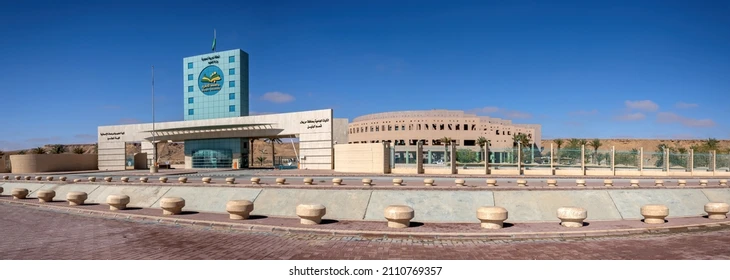In a groundbreaking move aimed at transforming the educational landscape, Saudi Arabia has introduced a distinctive strategy to ensure that the younger generation receives the invaluable gift of education. Under this new initiative, parents could face imprisonment if their children are absent from school without a valid reason. This ambitious approach underscores the nation’s commitment to prioritize education and secure a brighter future for its youth.
1.Saudi Arabia Empowering the New Generation
2.Saudi Arabia is Addressing Root Causes

A Paradigm Shift in Education
Saudi Arabia’s latest strategy marks a significant departure from conventional methods of promoting attendance and engagement in schools. While truancy has long been a concern for educators and policymakers, the Kingdom’s decision to penalize parents for their children’s absenteeism is both bold and innovative. This approach reflects a determination to foster a culture of consistent attendance, active learning, and academic achievement.

Empowering the New Generation
The driving force behind this initiative is to empower the new generation with the indispensable tool of education. By holding parents legally accountable for their children’s attendance, Saudi Arabia is sending a clear message that education is not just a personal responsibility but a collective obligation. The move aims to bridge the gap between home and school, emphasizing the vital role parents play in their children’s educational journey.

Addressing Root Causes
The decision to link parental accountability to school attendance recognizes that absenteeism can often stem from various underlying factors. These could range from lack of interest and engagement to socioeconomic challenges that may hinder regular school participation. By addressing these root causes, the Saudi government hopes to create a more supportive environment for students, while also encouraging parents to actively contribute to their children’s educational development.

Critics and Controversies
Unsurprisingly, this radical approach has sparked its share of debates and controversies. Critics argue that penalizing parents may not be an effective solution, and that the focus should instead be on identifying and addressing the factors that lead to absenteeism. They also express concerns about potential unjust punishments for parents who may not have full control over their children’s decisions.
The Way Forward
While the strategy has its share of detractors, it cannot be denied that Saudi Arabia’s commitment to revolutionizing education is admirable. The move has the potential to create a sense of shared responsibility among parents, educators, and policymakers. However, its success ultimately hinges on the government’s ability to strike a balance between enforcement and support, addressing the complex web of issues that contribute to absenteeism.
Conclusion
Saudi Arabia’s innovative approach to ensuring children’s school attendance by holding parents accountable through legal measures is a testament to the nation’s dedication to providing quality education for all. As the world watches this bold experiment unfold, it serves as a reminder that transforming education requires not only visionary policies but also a nuanced understanding of the challenges that students and families face. Whether this strategy proves to be a game-changer or a learning experience in itself, it undeniably highlights the critical importance of education in shaping the future of any society.

(Important to know more)
Navigating Tradition and Transformation
Education in Saudi Arabia has experienced significant changes over the years, reflecting the nation’s efforts to balance its traditional values with the demands of a rapidly evolving world. As a country deeply rooted in its cultural and religious heritage, Saudi Arabia has embarked on a journey to modernize its education system while upholding its core principles.
Historical Perspective
Traditionally, education in Saudi Arabia was provided through religious institutions and informal gatherings. The Quranic schools, known as “kuttab,” were central to this system, imparting religious education and basic literacy skills. However, the country recognized the need to broaden its educational scope in line with global advancements.
Modernization and Development
In recent decades, Saudi Arabia has invested heavily in modernizing its education system. The government’s focus on education is evident in its allocation of a substantial portion of the national budget to this sector. The goal is to equip the younger generation with the skills and knowledge required to succeed in an increasingly interconnected world.

Key Features of the Saudi Arabian Education System
Religious Education: Religion continues to play a crucial role in Saudi Arabian education. Islamic studies are integrated into the curriculum at all levels, ensuring that students have a strong foundation in their faith and culture.
Boys’ and Girls’ Education: While traditional gender segregation remains a part of Saudi culture, efforts have been made to provide quality education to both boys and girls. Girls’ schools have expanded, and women have been encouraged to pursue higher education and contribute to various fields.
Modern Curriculum: The curriculum has been updated to include a diverse range of subjects, including science, mathematics, languages, and social studies. The aim is to prepare students for higher education and careers in a variety of fields.

Higher Education: Saudi Arabia has established numerous universities and institutions to cater to higher education. Government scholarships have been provided to send students abroad for further studies, exposing them to global perspectives.
Vocational and Technical Training: Recognizing the importance of practical skills, vocational and technical training centers have been set up to train students for specific trades and industries.
International Collaboration: The country has been actively collaborating with international educational institutions, inviting foreign faculty and implementing international best practices.
Digital Transformation: Saudi Arabia has embraced digital technology in education, aiming to create a tech-savvy generation ready for the demands of the digital age.
Challenges and Future Directions:
Despite the advancements, Saudi Arabia’s education system faces challenges. Adapting to a rapidly changing world while respecting cultural norms can be complex. The system is also grappling with issues like quality assurance, teacher training, and alignment with job market demands.
Looking ahead, Saudi Arabia aims to continue its educational transformation by striking a balance between tradition and innovation. The goal is to empower its youth with a well-rounded education that blends modern skills with cultural values, fostering individuals who can contribute meaningfully both nationally and internationally. As the country navigates this journey, its education system serves as a reflection of its aspirations and the challenges inherent in shaping a knowledge-driven society.
To know More about Saudi Arabia Please click Here
You May Like :


